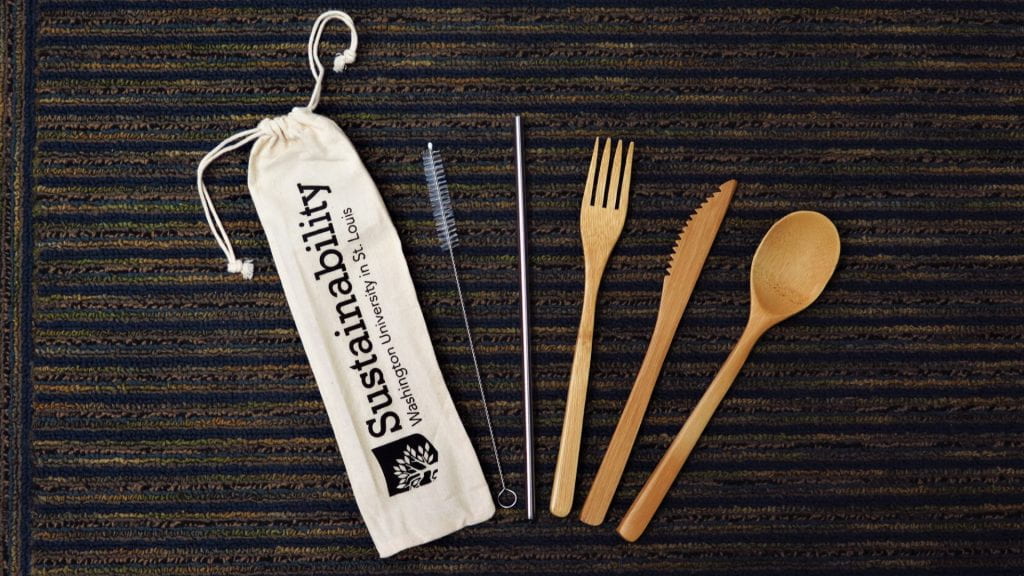Promotional products, commonly known as “swag” are abundant at WashU. Virtually every department or office has apparel or mugs, water bottles and reusable bags are popular giveaways, and everything from pens to umbrellas to lunchboxes show up at events or in office storage rooms.
All of these items have a cost – their quality, utility, and sheer abundance will impact whether they are used and appreciated by the owner, or if they make a quick trip to the landfill. The environmental impact of the item itself throughout its lifecycle, as well as the human impact of the working conditions for those involved with producing the product, are important considerations which cannot be ignored.
In response to a commitment to align branded promotional products with university values, a cross-functional team of Washington University personnel completed an extensive review of companies that provide not-for-resale branded apparel and promotional products to University departments, student groups, and other affiliated organizations. The team included representatives from the Office of Public Affairs, Sustainability, Medical Public Affairs, Resource Management (Purchasing), and University Advancement. The University’s trademark licensing agency, Exemplar Associates, assisted in the review.
Over 40 companies were invited to participate in the structured evaluation, and in the end, 13 were offered three-year contracts to provide enhanced products and services to the University community. These 13 companies will support the WashU merchandising principles of Engagement, Stewardship, Innovation, Sustainability, and Education, and all are committed to improving conditions for the people and environments that are relied upon for the production and manufacturing of apparel and promotional items.
“On behalf of our review team, I am confident the WashU community will embrace these 13 suppliers. Aligned with WashU’s guiding principles, the group includes certified B-Corps, alumni-owned businesses, women-owned enterprises, and a number of local ventures.”
Karen Daubert, Executive Director of Administration and University Relations.
Starting with trusted, university-vetted suppliers is an important first step when selecting a vendor for promotional products and swag. When reviewing catalogues and considering options, think about some of the criteria that can lessen the environmental impact:
- Where is the item made?
- What material is the item made from?
- How long will the recipient likely hold onto and use the item (is it useful and durable)?
- How will the item be disposed of? Is it recyclable or biodegradable?
